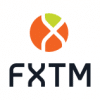Report highlights growing expectation for personalized service
A recent report from Cerulli Associates reveals that affluent investors are increasingly relying on their investment advisors to guide their finances. With this increased reliance comes a higher expectation for a superior level of service from their financial professionals.
During periods of macroeconomic turmoil, investors, especially those with significant wealth, are becoming more willing to pay for advice. However, they now expect their advisors to go beyond simply managing their investments. This shift in expectation requires advisors to offer customized solutions tailored to the unique needs and goals of each client household.
Scott Smith, Cerulli’s director of advice relationships, emphasizes the crucial aspect of understanding the circumstances, preferences, and goals of clients. Advisors must dedicate as much effort to this understanding as they do to researching the product solutions they offer.
The report also highlights a significant disparity between the desired service level investors seek from financial services providers and what they actually experience. A staggering 57% of investors express a preference for consolidating most of their financial activities with a single firm. However, only 25% of them have been able to achieve this because of limited offerings from their primary provider or challenges associated with consolidating their assets.
As affluent individuals place an increasing amount of trust in their advisors, the demand for personalized service will continue to rise. Financial professionals should seize this opportunity to differentiate themselves by delivering tailored solutions that meet the unique needs and goals of their clients.
Meeting the Evolving Expectations of Clients
The larger registered investment advisor (RIA) firms have taken notice of the growing expectations of their clients. In response, they have been actively seeking out experts in various fields such as tax planning, accounting, estate and trust services, and law to enhance their wealth management offerings.
For instance, Modern Wealth Management, a private-equity-backed RIA that recently launched with the aim of becoming a prominent national firm, made headlines last week with its acquisition of Martin James Investment and Tax Management. This strategic move is part of its plan to develop a “fully-integrated, holistic wealth management platform” that includes specialized expertise in tax planning and other related areas.
According to Cerulli, there is a clear shift in investor preferences towards full-service investment advisors, as opposed to transaction-based brokerage relationships. This change is reflected in the fact that 55% of advised assets currently reside in fiduciary advisory accounts, compared to just 34% in 2011.
To keep up with this trend and expand their practices, advisors need to assess the specific services that their clients are seeking but are not currently available through their firm. By identifying these gaps, advisors can then strategically build out those areas to better serve their clients.
The key takeaway from Cerulli’s research is that in order to cater to the next generation of clients, providers must adapt their platforms to align with the preferences and goals of advice seekers. Instead of trying to convince clients that their current offerings are sufficient, advisors need to embrace the opportunity to tailor their services to meet the evolving needs of their clients.
Overall, the landscape of the investment advisory industry is changing, and firms must be proactive in acquiring specialized expertise and adapting their platforms to deliver a comprehensive and personalized wealth management experience.








Leave a Reply